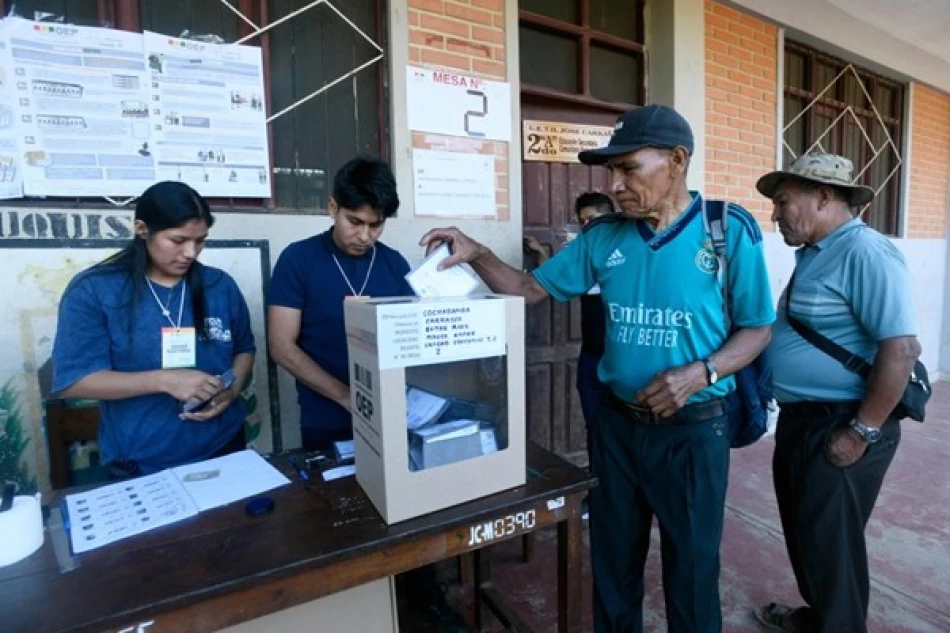
Bolivia Holds Runoff Election After Disputed Results
Bolivia Heads to Presidential Runoff as Centrist Candidate Fails to Secure Outright Victory
Bolivia is preparing for a decisive presidential runoff election after Sunday's voting failed to produce a clear winner, setting up a battle between centrist candidate Rodrigo Paz and former right-wing president Jorge "Tuto" Quiroga. The outcome will determine whether Bolivia shifts toward political moderation or returns to conservative leadership amid ongoing economic challenges and regional political realignment.
Election Results Point to Divided Electorate
With over 91% of votes counted, centrist candidate Rodrigo Paz secured 32.8% of the vote, while former president Jorge Quiroga captured 26.4%. Under Bolivia's electoral system, a candidate must win either more than 50% of votes or at least 40% with a 10-point margin over their nearest competitor to avoid a runoff. Paz's failure to meet these thresholds despite his lead signals a fragmented political landscape.
The runoff election is scheduled for October 19, giving both candidates less than three weeks to consolidate support and appeal to voters who backed other contenders in the first round.
Political Stakes and Historical Context
Quiroga's Return to the Political Arena
Jorge Quiroga's strong second-place finish marks a significant political comeback for the 64-year-old former president who last held office over two decades ago. His previous presidency from 2001-2002 was marked by economic reforms and closer ties with the United States, contrasting sharply with the socialist policies that dominated Bolivia during much of the 2000s and 2010s under Evo Morales.
The Centrist Challenge
Paz's emergence as the frontrunner reflects a potential appetite for political moderation in a country that has experienced significant polarization. His centrist positioning could appeal to voters seeking stability without the dramatic policy swings that have characterized Bolivia's recent political history.
Economic and Regional Implications
The election outcome carries significant implications for Bolivia's economic trajectory and regional relationships. A Quiroga victory could signal a return to more market-friendly policies and stronger alignment with regional conservative governments, while a Paz presidency might pursue a middle path between socialist and free-market approaches.
For investors and regional observers, the runoff represents a critical juncture. Bolivia's vast lithium reserves—essential for global battery production—make the country's political direction particularly relevant for international markets and supply chain strategies.
What the Runoff Reveals About Latin American Politics
Bolivia's electoral dynamics mirror broader trends across Latin America, where traditional left-right divisions are giving way to more complex political alignments. The strong showing for both centrist and conservative candidates suggests voter fatigue with ideological extremes—a pattern observed in recent elections across the region from Colombia to Chile.
The October 19 runoff will test whether Bolivian voters prioritize continuity and moderation or seek a return to more familiar conservative governance. With neither candidate securing a commanding first-round victory, the next three weeks of campaigning will likely focus on coalition-building and appealing to the substantial portion of the electorate that supported other candidates.
Most Viewed News

 Layla Al Mansoori
Layla Al Mansoori






